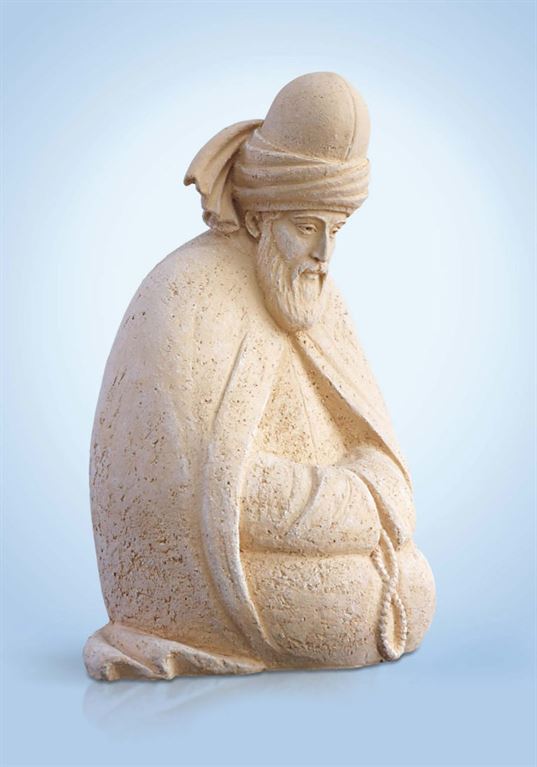Rumi Jalaladdin. 2010
Author: Alexey Leonov
Material: chamotte
Location: Частное собрание
The famous Persian Sufi poet Jalaladdin Rumi (1207-1273) was depicted by the sculptor in the pose of a philosopher, deep in thought about the Creator’s plan called Life.
The idea of a person as a wise spirit whose goal is to overcome the lower, animal nature and ascend to the next – “angelic” level – is a defining concept of Sufism. And in the works of Rumi, an outstanding teacher of Central Asia, the idea of Teaching as the essence of life occupies a remarkable place. Earthly existence itself is considered as a method of systematic teaching of human souls about Higher Truth, moreover, each soul perceives the Teaching at the level available to it and within the limits assigned to it. Madrasah (educational institution) is our whole world; the period assigned to the lesson is human life; study guide – all circumstances, meetings, objects and living beings that accompany our existence; exams are trials and temptations… The teacher is the Creator himself. This idea is most prominently expressed in “Masnavi” – the main work of Rumi, which many generations of Islamic esotericists considered as a kind of “Persian Koran” (or “Writings in the Farsi language”). In the collection, various postulates, ideas, and revelations of sufism are consistently presented, which are substantiated by Koranic quotes and hadiths (examples from the life of the Prophet Muhammad), as well as illustrated by bright parables and wise instructions.
In his work, Rumi thought highly of science and knowledge, concepts of patriotism, hard work, humanism and all other components of positive qualities that characterise a person. Rumi illustrates his complex theoretical positions with parables, fables and other short stories from Eastern folklore, his views are full of deep humanism, ideas of tolerance, unity of religious law and creed.
“If only not words were trusted,
But the truth that is known by the heart,
But to the heart that burns with truth,
Then there would be no limits to miracles.”




